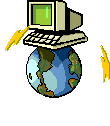School library and Computer lab launch at Lwandle Primary
Principal : Mr S. Maqhubela




This ceremonious event took place at the premises of the Lwandle Primary school on the 17 August 2011. The main objective behind the launch was to notify all relevant stakeholders about existence of the two main information centres that are now officially in operation. Launching these two information Centres was paramount as it was through collaboration and efforts of the stakeholders. Furthermore, learners needed to be made aware that the library and Computer lab work reciprocally to uplift learning and teaching.

The WCED (represented by Ms K. Mabandla) and Khanya Project (represented by B. Hendricks and S. Didiza) were the main official representatives who made the existence of the school library and Computer centre possible for our learners. The WCED efforts started when Ms K. Mabandla visited the school to meet our school library coordinator. The school coordinators keenly consulted all school structures (Principal, educators, School Governing Body and broader parent community). Parents never wasted time as they saw the initiatives will benefit their learners. Learners will definitely improve the level of reading, writing and numeracy. There were other partners (i.e. Equal Education and Rotary Club) in education who primarily help schools from the disadvantaged community. They indicated from their speeches that they would like to see the centres used profitably for the best interest of learners so that in the end they (learners of the school) are on par with other well-off learners in well-resourced schools. A number of representatives from various neighbouring schools were in attendance also to witness the event. Both rooms were resourced satisfactorily but space for books and other equipment is vast and the school will appreciate assistance from any organization.
Music, dance and poetry characterized the jubilation of learners and visitors during this event.
Reported by Sipho Didiza











 The WCED (represented by Ms K. Mabandla) and Khanya Project (represented by B. Hendricks and S. Didiza) were the main official representatives who made the existence of the school library and Computer centre possible for our learners. The WCED efforts started when Ms K. Mabandla visited the school to meet our school library coordinator. The school coordinators keenly consulted all school structures (Principal, educators, School Governing Body and broader parent community). Parents never wasted time as they saw the initiatives will benefit their learners. Learners will definitely improve the level of reading, writing and numeracy. There were other partners (i.e. Equal Education and Rotary Club) in education who primarily help schools from the disadvantaged community. They indicated from their speeches that they would like to see the centres used profitably for the best interest of learners so that in the end they (learners of the school) are on par with other well-off learners in well-resourced schools. A number of representatives from various neighbouring schools were in attendance also to witness the event. Both rooms were resourced satisfactorily but space for books and other equipment is vast and the school will appreciate assistance from any organization.
The WCED (represented by Ms K. Mabandla) and Khanya Project (represented by B. Hendricks and S. Didiza) were the main official representatives who made the existence of the school library and Computer centre possible for our learners. The WCED efforts started when Ms K. Mabandla visited the school to meet our school library coordinator. The school coordinators keenly consulted all school structures (Principal, educators, School Governing Body and broader parent community). Parents never wasted time as they saw the initiatives will benefit their learners. Learners will definitely improve the level of reading, writing and numeracy. There were other partners (i.e. Equal Education and Rotary Club) in education who primarily help schools from the disadvantaged community. They indicated from their speeches that they would like to see the centres used profitably for the best interest of learners so that in the end they (learners of the school) are on par with other well-off learners in well-resourced schools. A number of representatives from various neighbouring schools were in attendance also to witness the event. Both rooms were resourced satisfactorily but space for books and other equipment is vast and the school will appreciate assistance from any organization.